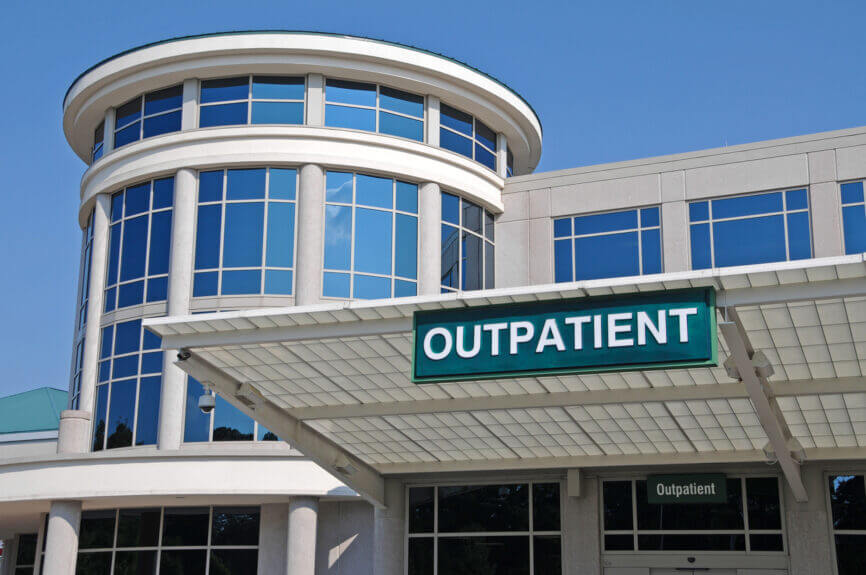Established in 1979, Accreditation Association for Ambulatory Health Care (AAAHC) plays a vital role in accrediting diverse ambulatory health care organizations in the U.S., including ambulatory surgery centers, endoscopy centers and more. With deemed status from CMS, AAAHC certifies ambulatory surgery centers (ASCs) for Medicare.
As a leader in the field, AAAHC has accredited over 6,700 organizations and is one of the three main organizations accrediting ASC and office-based surgery practices. The other two entities sharing this responsibility are The Joint Commission and the American Association for Accreditation of Ambulatory Surgery Facilities (AAAASF–also known as QuadA).
AAAHC’s accreditation standards for ASCs cover a spectrum of crucial areas, all aimed at ensuring the delivery of safe and high-quality care to patients. There are five key domains:
- Governance: This area centers on the leadership and governance structure of the facility, ensuring effective decision-making, accountability, and ethical practices for quality care.
- Patient Rights and Responsibilities: Emphasizing patient rights, privacy, and informed decision-making, AAAHC empowers patients to actively participate in their healthcare journey.
- Quality Improvement: AAAHC promotes a culture of continuous quality improvement, urging organizations to establish systems for data-driven decision-making and evidence-based practices, ensuring an adaptive approach to patient care.
- Patient Care and Management: Encompassing the entire care process, from assessment to discharge, this domain emphasizes comprehensive care, coordination, and effective communication among healthcare providers for a patient-centered experience.
- Patient Safety: AAAHC’s standards prioritize safety through infection control, medication management, adherence to guidelines, and emergency preparedness, creating a secure environment for ambulatory care procedures.
How Does AAAHC Differ from The Joint Commission and AAAASF?
Navigating Accreditation Standards
In the realm of healthcare accreditation, distinctions emerge between AAAHC, Joint Commission, and AAAHC. While The Joint Commission is Medicare’s standard for hospitals and nursing homes, AAAHC and AAAASF take the lead for ambulatory surgery centers and office-based surgery centers. Notably, AAAHC and AAAASF accept non-Medicare applications, offering flexibility. However, a significant difference lies in licensing requirements – both AAAHC and The Joint Commission mandate state licensure for accreditation, setting a crucial parameter for practices seeking accreditation.

The Impact of an AAAHC Accreditation & Certification: The Message It Sends
Accreditation showcases a dedication across the entire organization to continuously enhancing quality. Certification, a specialized program lasting three years, prioritizes patient outcomes and expands on the prerequisites of accreditation. Both honors showcase the application of research-supported clinical practice protocols, continuous enhancement tactics, and a framework that fosters excellence. From the vantage points of both patients and providers, adhering to Accreditation Association for Ambulatory Health Care Standards for accreditation and advanced certification holds profound meaning. It signifies a commitment to evidence-based clinical practice guidelines, continuous performance improvement strategies, and the establishment of a robust infrastructure dedicated to excellence.
Noteworthy Advantages of AAAHC Stamp of Approval:
- Patient Trust: AAAHC accreditation assures patients of rigorous standards, instilling confidence in the facility’s commitment to quality and safety, fostering trust in their care.
- Operational Excellence: The quest for AAAHC accreditation drives the adoption of best practices, enhancing operational efficiency for continuous improvement in patient outcomes.
- Regulatory Compliance: Accreditation signifies conformity with local and national laws, minimizing the potential for legal issues and improving the overall operational reliability.

Criteria for Advanced Orthopaedic Certification (AOC)
ASCs accredited by AAAHC have the opportunity to build on their accreditation through Advanced Orthopaedic Certification (AOC). This certification offers two distinct pathways: one for total joint replacements, another for spine procedures. Alternatively, organizations can pursue a comprehensive certification that encompasses both orthopedic services. Adherence to the AAAHC Standards for advanced orthopedic certification signifies the application of evidence-supported clinical practice protocols, continuous enhancement tactics, and a framework that fosters excellence.
The ASC must showcase the use of evidence-based clinical guidelines, continuous performance improvement strategies, and an effective organizational infrastructure for safe and effective care. Conducted by experienced clinical surveyors in the ambulatory orthopedic setting, onsite surveys comprehensively assess the entire continuum of care, from pre-assessment to discharge and rehabilitation.
To be eligible for participation, organizations must hold AAAHC accreditation and meet the following criteria:
- Complete a minimum of 20 procedures for each specialty type (total joint replacements and/or spine procedures) in the 12 months before applying.
- Ensure surgeons participating in the specialty services maintain a median of at least 50 procedures annually for each specialty type, including inpatient and outpatient.
- Maintain good standing with AAAHC at the time of certification application submission.
Elevate Your PROs with CODE: The Path to Smooth Accreditation
Simplify your accreditation process and ensure seamless Patient-Reported Outcomes (PROs) collection. Discover how CODE can revolutionize your healthcare facility’s journey to excellence.




